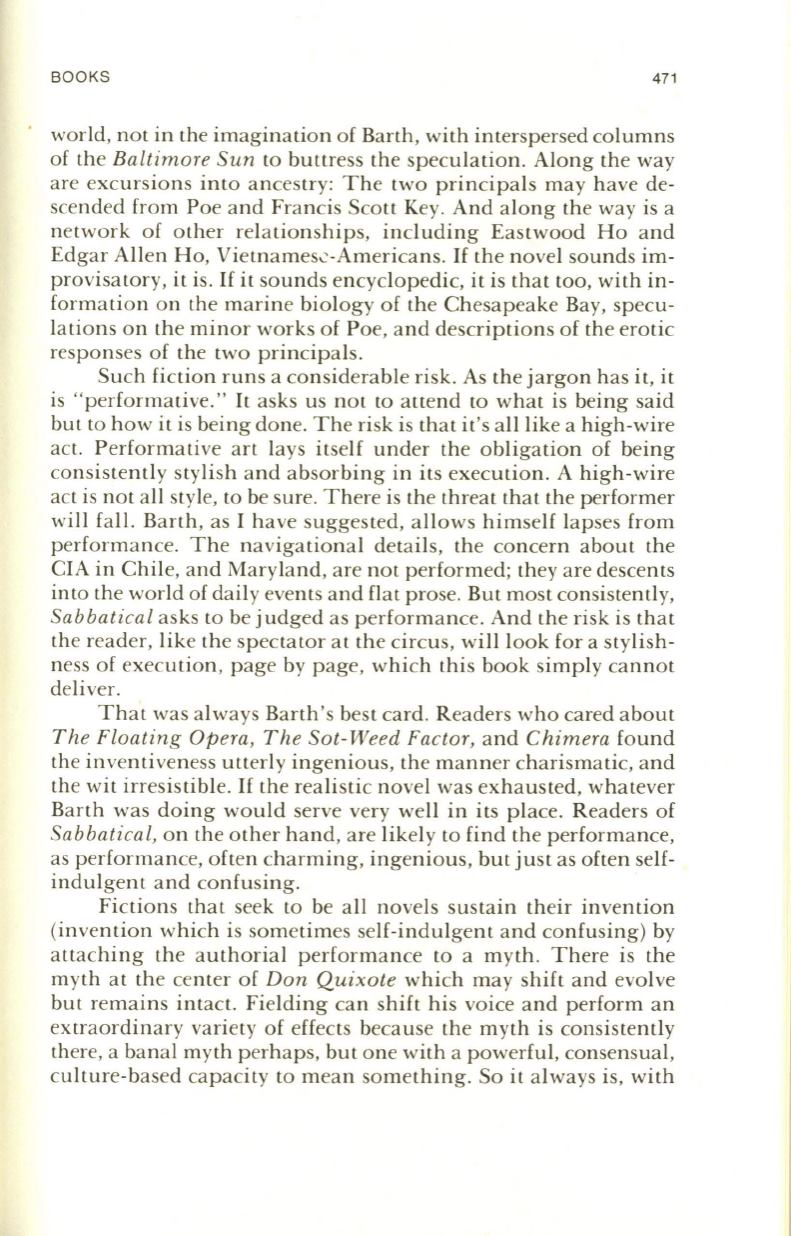
BOOKS
471
world, not in the imagination of Barth, with interspersed columns
of the
Baltimore Sun
to
buttress the speculation. Along the way
are excursions into ancestry: The two principals may have de–
scended from Poe and Francis Scott Key. And along the way is a
network of other relationships, including Eastwood Ho and
Edgar Allen Ho, VietnamesL-Americans.
If
the novel sounds im–
provisatory, it is.
If
it sounds encyclopedic, it is that too, with in–
formation on the marine biology of the Chesapeake Bay, specu–
lations on the minor works of Poe, and descriptions of the erotic
responses of the two principals.
Such fiction runs a considerable risk. As the jargon has it, it
is " performative."
It
asks us not to attend to what is being said
but to how it is being done. The risk is that it's all like a high-wire
act. Performative art lays itself under the obligation of being
consistently stylish and absorbing in its execution. A high-wire
act is not all style, to be sure. There is the threat that the performer
will fall. Barth, as I have suggested, allows himself lapses from
performance. The navigational details, the concern about the
CIA in Chile, and Maryland, are not performed; they are descents
into the world of daily events and flat prose. But most consistently,
Sabbatical
asks
to
be judged as performance. And the risk is that
the reader, like the spectator at the circus, will look for a stylish–
ness of execution, page by page, which this book simply cannot
deli ver.
That was always Barth's best card. Readers who cared about
The Floating Opera, The Sot-Weed Factor,
and
Chimera
found
the inventiveness utterly ingenious, the manner charismatic, and
the wit irresistible.
If
the realistic novel was exhausted, whatever
Barth was doing would serve very well in its place. Readers of
Sabbatical,
on the other hand, are likely
to
find the performance,
as performance, often charming, ingenious, but just as often self–
indulgent and confusing.
Fictions that seek to be all novels sustain their invention
(invention which is sometimes self-indulgent and confusing) by
attaching the authorial performance to a myth. There is the
myth at the center of
Don Quixote
which may shift and evolve
but remains intact. Fielding can shift his voice and perform an
extraordinary variety of effects because the myth is consistently
there, a banal myth perhaps, but one with a powerful, consensual,
culture-based capacity to mean something. So it always is, with


